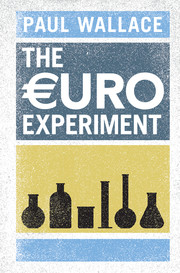5 - Bad banks
Published online by Cambridge University Press: 05 December 2015
Summary
One of the many lessons of the euro crisis was that timing matters, both in the order of events and in the sequence of responses. The fact that Greece rather than Ireland was the first country to require a bail-out turned out to be highly significant. If the order had been reversed and Ireland had toppled over first, then it would have been clear from the outset that weak banks as much as weak states lay at the heart of the euro crisis. But because Greece was the first to fall, the crisis was misconstrued as predominantly a sovereign debt crisis, even though Greek fiscal improvidence was an extreme case by any reckoning. This led to a crucial delay in recognising both the problem and the solution that was necessary, the creation of a banking union (though even here only the rudiments were put in place). If some of the effort that was put into tackling the fiscal weaknesses of euro-zone governance in 2010 and 2011 had been directed instead towards swifter action in addressing the flaws in banking supervision, the euro crisis might not have intensified to such an alarming extent.
Among the other rescued countries, Portugal most closely resembled Greece. Although Portuguese banks were inadequately capitalised and over-reliant on wholesale funding, it was the dire state of the country's public finances that led to the euro area's third rescue. But of the five countries eventually bailed-out during the euro crisis, fragile banks lay at the heart of the problem in at least three of them. Ireland was the first instance, but banking crises also brought down Cyprus and undermined Spain. Moreover, bust banks made Slovenia a near miss on the list of bail-outs, teetering for over a year on the brink of requiring help before finally getting to grips with them at the end of 2013.
The reluctance to recognise that the euro crisis was in large measure the second leg in Europe of the financial crisis had baleful consequences. Instead of rooting out the bad loans and cleaning up bank balance sheets, the problem was left to fester even though previous experience had shown that swift surgery was vital to prevent the gangrene spreading.
- Type
- Chapter
- Information
- The Euro Experiment , pp. 116 - 142Publisher: Cambridge University PressPrint publication year: 2015



